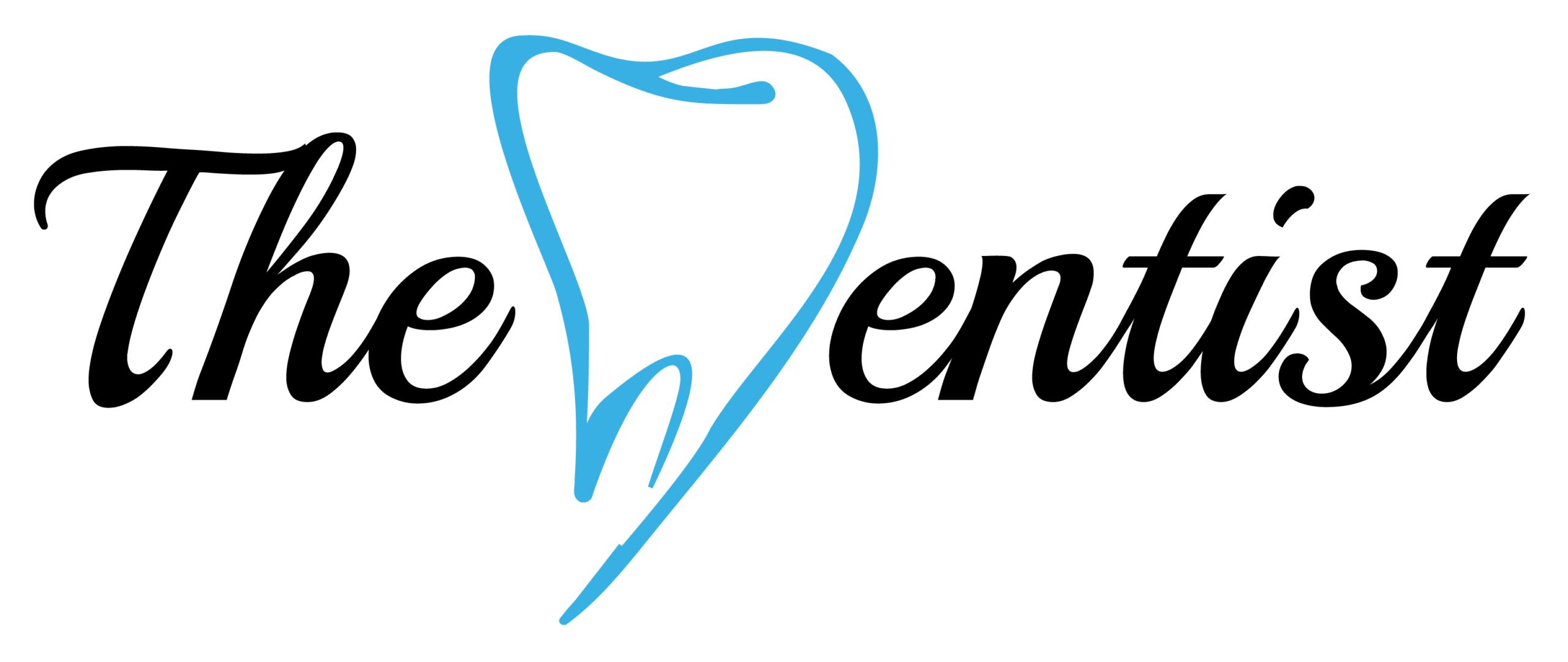Good dental hygiene is one of the most important yet overlooked aspects today.
A healthy lifestyle often starts with oral health. And most forget to pay attention to their dental needs.
Are you one of them?
Visit The Dentist today.
Speak with our Doctor directly at +91-9971711810 and schedule an appointment now.
THE DENTIST – An Advanced Dental Care facility focused on Saving Your Natural Teeth. At THE DENTIST, we believe that nothing beats your natural teeth. That’s why our approach is centered on preserving them for as long as possible, with the right diagnosis, advanced techniques, and gentle care. With over 20 years of combined experience, our senior doctors bring expertise from some of Delhi NCR’s top hospitals. We offer a wide range of treatments including Root Canals, Dental Implants, Invisible Aligners, Crowns & Bridges, Teeth Whitening, and more — all tailored to your specific needs. Our core team of doctors include Dr Srishti Jauhar, an expert in Root Canal Treatments (3000+ RCTs done so far); Dr Anurag Singh, an expert in Dental Implants (3000+ Dental Implants done so far) & Dr Karan Bhalla an expert in Dental Aligners & Braces (600+ Invisible Aligners executed so far). At THE DENTIST, we combine science, skill, and sensitivity to help you hold on to your natural smile, longer.
Learn more about our Doctors.
Read our Patient Reviews.
11 helpful oral care tips for elders in 2026
11 helpful oral care tips for kids in 2026
Not brushing at the correct times or with proper brushing equipment can complicate dental care.
You need to take a look at maintaining your oral hygiene.
Dental care is a must, and if you want to improve your oral health and keep your teeth healthy, here are some must-knows.
1. Choose the right toothbrush.
What type of toothbrush should you choose?
The market has different brushes, ranging from soft to hard to electric. The best kind is the ones with soft bristles, as our teeth do not need hard brushing.
How should you brush?
If you want to keep your teeth healthy, brush slowly and with circular movements, allowing the bristles to reach farther into the dental gaps and cavities and remove plaque.
The enamel, a thin coating over our teeth that makes them appear white, can erode upon hard brushing.
Fact to know
Interestingly, our teeth are naturally yellow, and the enamel makes them look white.
Brushing too hard does not cause them to become whiter and erodes them. Brush for at least two minutes each time.
2. Get the ideal toothpaste.
What type of toothpaste should you use?
Many toothpaste companies claim to have been recommended by dentists around the world.
So, how do you know which one’s the best?
While it might seem confusing, the actual recommendation by dentists is often to use any toothpaste with sufficient fluoride in it.
Do you need to think of anything else?
All other variables don’t factor in heavily as long as the toothpaste fulfils the essential chemical criterion and the brushing method is correct.
But, if you have sensitive teeth or bleeding gums, your dentist will guide you accordingly.
3. Brush twice every day.
Why and when should you brush twice?
The rationale behind brushing twice is two-tiered.
First, brushing at night prevents acidic build-up in the mouth. This can, in turn, cause teeth and gum erosion.
Second, brushing in the morning removes any plaque or acidic build-up that may have formed at night.
How does it help?
If you want to keep your teeth healthy, regular brushing is recommended for the teeth, gums, and tongue for the solid and liquid intake of the day.
Use short back-and-forth motions, holding the toothbrush at a slight angle to achieve the best results.
4. Cleaning your tongue.
Why should you clean your tongue?
Are you confused about where that foul breath comes from?
It’s probably your unclean tongue – and no, it doesn’t matter how talkative you are – you must clean your teeth daily.
Plaque formation occurs not only on the teeth and crevices but also on the tongue.
Over time, it can cause a major foul breath despite brushing correctly.
What should your tongue cleaner look like?
Ideally, a tongue cleaner made of plastic is best suited for your mouth.
It bears minimal chances of infection as opposed to metallic tongue cleaners.
5. Avoid greasy food and smoking.
How does food affect your teeth?
The food you take may also determine your oral health.
High-acidic foods consumed in the morning or at night can cause tooth decay despite the best measures you may take.
When should you avoid eating?
To keep your teeth healthy, avoid consuming too much soda and junk food right after or before bed.
Avoid tooth-staining foods like coffee and tea in large quantities.
It is best not to consume anything within half an hour of brushing. This ensures that the teeth are fully readied for food intake.
What else do you avoid?
Nicotine, commonly found in all cigarettes, can cause severe and irreversible damage to your teeth.
6. Replace the toothbrush often.
When should you replace your toothbrush?
If you want to keep your teeth healthy, don’t use your toothbrush for months.
A good toothbrush can last for around 2-3 months.
Why should you replace your toothbrush regularly?
Replacement is necessary as the toothbrush bristles will break down over time, losing effectiveness.
An overused toothbrush cannot make way to all the tricky corners of your mouth & teeth.
7. Rinse your mouth.
How does rinsing the mouth help?
Rinsing your mouth after brushing your teeth is a good habit to keep your teeth healthy. And it goes a long way towards dental health.
It can significantly reduce plaque, as the rinse can reach areas your toothbrush cannot.
It disinfects the mouth and tongue and offers a fresh feeling.
What should you watch out for?
Some mouth rinses even contain fluoride or other antiseptics and antiviral and antibacterial properties, enabling complete mouth protection. You can use them for better teeth protection.
8. Floss regularly.
Why should you floss?
Another critical aspect of the everyday care of your teeth is to floss your teeth at least once a day.
This much is sufficient for maintaining a good oral health care routine.
Flossing keeps your teeth healthy and removes 2 things: 1) the food particles stuck between your teeth and 2) the thin layer of bacteria, which later develops into plaque.
How to floss?
Remember to floss between your teeth and pull the floss against the two surfaces of the tooth.
Scrape off plaque by pulling the floss from the gumline to the top, and do not forget to use fresh floss.
Flossing daily is a sure-shot way to ensure minimal chances of gingivitis, tooth decay or tooth loss.
9. Use an interdental cleaner.
How can an interdental cleaner help?
Interdental cleaners can help clean the wide teeth spaces.
If the gaps between your teeth are too big to use floss effectively, you can try using interdental cleaners.
Which one do you need?
They are small and can come in different widths to match your needs.
Your dentist can tell you how to use interdental cleaners better.
10. Don’t use toothpicks.
Why shouldn’t you use toothpicks?
It’s always a good idea not to use substances not made for dental care.
How can toothpicks affect your teeth?
For instance, toothpicks can damage the tooth enamel and cause blood to ooze.
Dental Veneers, if you have, and the bonding can break easily if you’re using toothpicks.
Everyday use of toothpicks can also damage the tooth’s gum.
11. Eat healthy food.
How can eating healthy help?
A healthy diet keeps gum diseases at bay and gives your teeth ample time to recover without being attacked by bacteria.
What should you prefer eating?
Intake more Vitamin-based foods like milk, egg yolk and fish.
You can even have cheese for protein, and baking soda can help stop stains.
You can also take in fruits like apples, pears and carrots; they’re a great way to brighten your teeth and scrub away stains. Lemon juice can help remove stains, too.
What should you avoid eating?
Avoid baking soda, especially if you’ve recently had crowns or veneers.
12. Don’t take acid reflux lightly.
What can acid reflux do?
If you’re suffering from acid reflux, consult a doctor immediately.
Over the long term, acid reflux can cause significant tooth erosion, tooth pain, and increased tooth sensitivity to certain foods and drinks that are either hot or cold.
Acid reflux can also lead to the darkening of the teeth.
How do you reduce acid reflux?
A great way to reduce acid reflux is to reduce the amount of chocolate, alcohol, tea, sodas, coffee, tomatoes, mint, citrus fruits, fried foods, vinegar and pickles you take.
You can have smaller meals and focus on losing weight if you’re overweight.
13. Drink Tea & Coffee with a straw.
How will it help?
Drinking tea and coffee with a straw ensures that the sugar and acids do not hit your tooth surface directly,
Using a straw reduces the chances of teeth exposure to the beverages you are consuming.
14. Massage your gums.
Why should you massage gums?
Massaging gums will increase blood flow and help build the body’s immune system.
How to massage gums?
You should massage your gums with a clean finger.
Massaging your gums after brushing is a daily habit. You can make massaging your gums a daily habit whenever you’re brushing.




